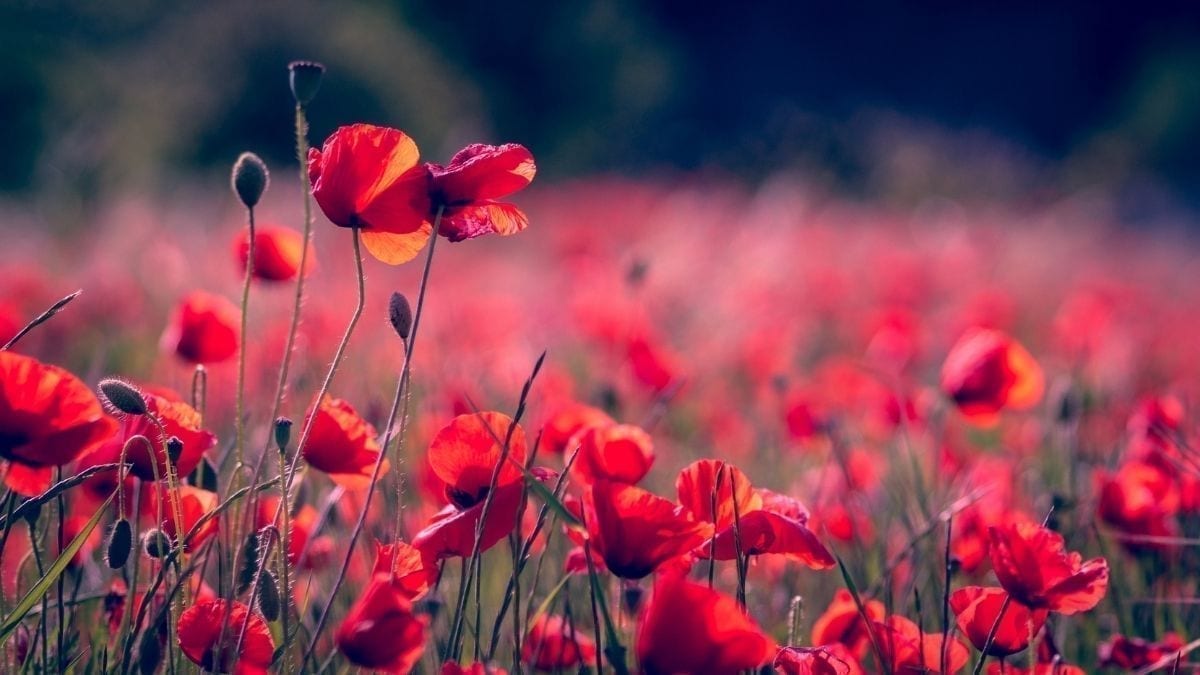November 11th is Remembrance Day in Canada and every year I spend the first eleven days of November reminiscing about the time I studied Wilfred Owen poems in England. It is classic book month here at Fully-Booked and we also consider poetry as an essential part of classic book collections.
I never really enjoyed poetry until that point because I could not appreciate the mastery of the English language in poems. Poets utilise words so effectively that in a few short lines, they can illustrate epic tapestries into our imagination.
My favourite poet by far is Wilfred Owen because when I read his poems, I feel what he felt as he wrote them. Owen does not write about love affairs nor “wandering lonely as a cloud”, he wrote about the horrors of war. The more peculiar aspect of his poetry was that he wrote about war honestly; at the time, the most popular poets were upper class men who never would have to go to war themselves, and if they did it would not be on the front lines.
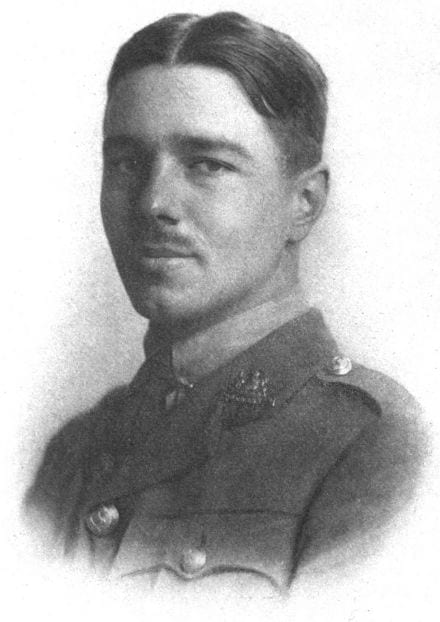
Owen wrote of his experience on the front lines and his distaste towards the countries that mercilessly sent their men to fight for their futile causes. His work is filled with imagery and endless literary devices; every time I read one of his poems, I notice something new. I can spend hours reading and re-reading, finding new meaning each time. I wanted to share some of my favourites here:
“A Terre” (Being the Philosophy of Many Soldiers)
The title of this poem is laced with Owen’s signature sarcasm and seething disgust at what he and his fellow soldiers lived through in the war. “A Terre” meaning “on the ground” in French, the title has many meanings. Firstly, that the soldiers have been sent to fight yet are not respected for their sacrifice, they are drafted because they are disposable, to be thrown away on the ground. When said in the right context, it can also mean “get on the ground”, the most obvious meaning of the title because the soldiers needed to get down on the ground to shelter themselves against enemy attacks.
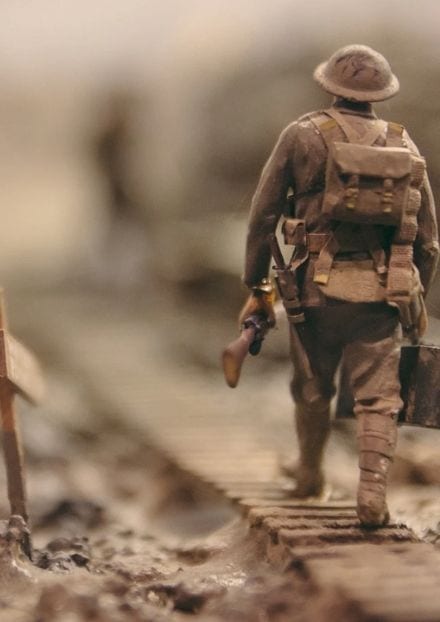
“Terre” is also the French word for “earth”. Many soldiers sadly ended up buried in the earth, in the ground after dying for their country. This is why “a terre” is the philosophy of many soldiers; because they feel that they have been thrown on the ground, and they must stay close to the ground to avoid being buried in the ground.
“A Terre” encompasses most of the themes Owen explores in all his poems and I could write about three articles with all of the symbolism in this poem, but instead I encourage you all to start here on your Owen journey.
“Tell me how long I’ve got? God! For one yearTo help myself to nothing more than air!”
“Anthem for Doomed Youth”
“What passing bells for those who die as cattle?” is a line that always stays with me whenever I think of all the men and women who died in wars past and present. They died for the conflicts of their countries, and who is cheering them on to do so?
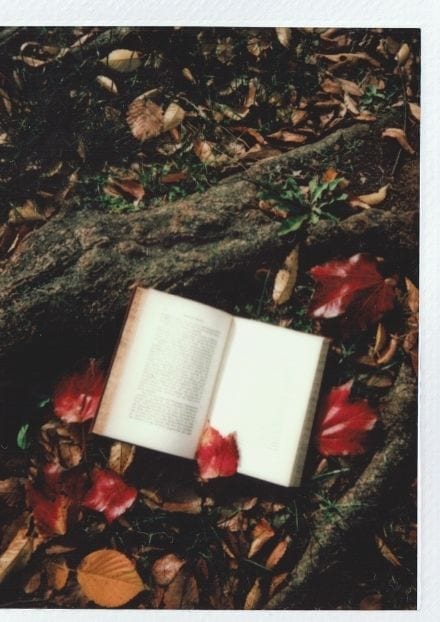
This image of cheering is warped in this poem, Owen is telling us that when they come back, we do not cheer for them anymore, we play a mournful sound. Throughout the poem there is a semantic field of music which ties religion to war, another subtle theme that Owen uses often in his poetry. Owen uses alliteration to reinforce the sound (or music) of the guns, and contrasts the sounds of war with religious music (“choirs”, “bells”, etc.) to highlight that youths are sent off to war as a cheerful occasion, but come back injured to the sound of mournful choirs.
This is a recurring subject for many of his poems, the waste of a youthful life because children have been told that it is an honour to fight for their country. Owen often suggests that when the young men came back from the war, they were not appreciated for their sacrifice.
“Futility”
Once again in this poem Owen lightly alludes to religion, questioning our existence. The poem asks what the point is in being alive, being created as living beings filled with love and warmth if we are just going to end up dead. The poem explores the futility of life. Nature is a prominent theme in this poem, suggesting that life is breathed into us by nature for a short time before we are taken back again into the soil. The poem paints an image of a young man, lying under the warm sun; a warmth that will never truly reach him.

“‘O Jesus Christ! I’m hit,’ he said; and died”
“The Last Laugh”
This poem is one of my favourites. It is short, but Owen expertly uses many literary devices to give life to inanimate objects. The war weapons are personified in this poem by use of a semantic field of laughter throughout. In most of his poems, Owen focuses on the soldiers however in this one he focuses on the guns and bullets, painting a picture of laughter as they injure and kill.
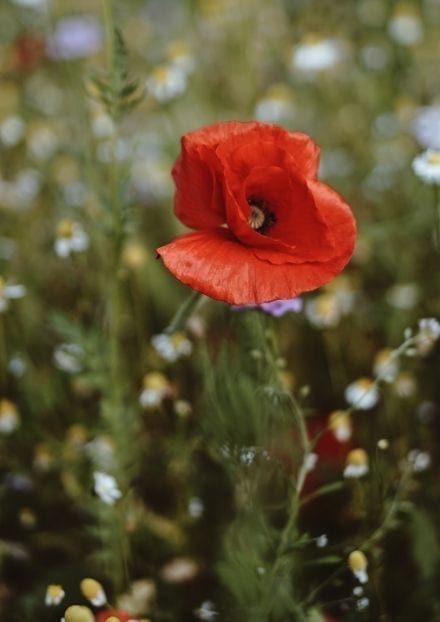
He also uses alliteration throughout in such a way that we can almost hear the guns laughing: “Machine-guns chuckled—Tut-tut! Tut-tut! And the Big Gun guffawed”. The whole poem is paced in such a way that it sounds like a clock ticking if read carefully, suggesting that the lives of the soldiers are being ticked away as the guns enjoy every moment.
“Strange Meeting”
Owen writes about death in war in most of his poems, but the perspective is different in Strange Meeting. In this poem, the narrator is speaking from the first person and he tells the story of a curious encounter with an unnamed individual, though the narrator seems to recognize them. “it seemed that out of battle I escaped” suggests that the narrator is leaving the war behind, entering a quiet room of some sort.
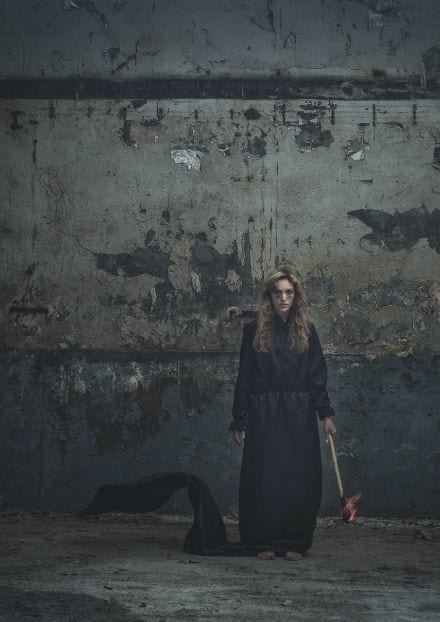
It is unclear at first if he is dead, however, this is not the type of poem that suggests death is peaceful or joyous; the narrator is in Hell. It is then revealed that the strange individual he is meeting is someone he recognizes. I have never been able to decide if I think this is himself or one of his friends from the war. The poem reads like a nightmare, but one of those nightmares that you have had so many times, it is no longer scary. The narrator seems almost relieved to realize he is in Hell; the war was hell, but his own personal Hell is more comforting than the terrors of war.
The poem continues, exploring the conversation and the memories between the narrator and the peculiar individual. I recommend this poem because it takes on a different tone and explores death from a different perspective. Strange Meeting illustrates just how troubled Owen’s mind was when he wrote his poetry, and the lines are beautifully written to weave elaborate mysterious messages in the mind of the reader.
“I went hunting wild After the wildest beauty in the world, Which lies not calm in eyes, or braided hair, But mocks the steady running of the hour”
Wilfred Owen was never enamored by enlisting in the army and offering himself up as a sacrifice. He suffered many injuries throughout his time fighting in World War I and was sent to a War hospital in Edinburgh to recover from Shell Shock in 1917.
He decided to return to the front lines in September of 1918, and then fought until he died on November 4th, 1918; exactly one week before Armistice Day. His poetry was his warning to the world that it is not always “right to die for one’s country”. He believed in being present for his fellow soldiers, so much so that he returned to war, to his own demise, to help fight and keep his friends safe.

